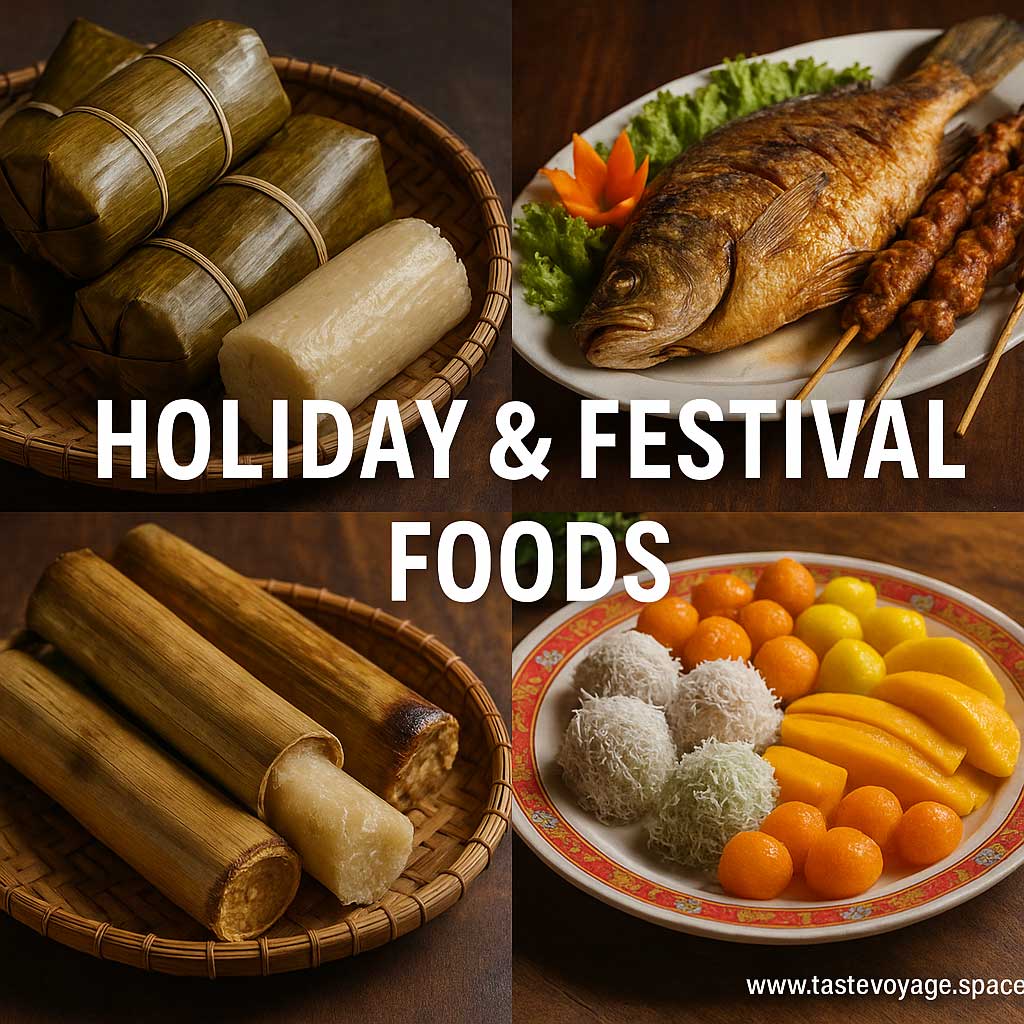Discover Traditional Cambodian Ancestor Festival Food
Travel the World Through Food >> Cambodian Cuisine>>Holiday & Festival Foods>> Discover Traditional Cambodian Ancestor Festival Food
Discover Traditional Cambodian Ancestor Festival Food
Discovering the Rich Heritage of Traditional Cambodian Ancestor Festival Food
Cambodian Cuisine is a treasure trove of history, culture, and tradition. Among its most cherished culinary customs is the special food prepared during the Ancestor Festival, a time dedicated to honoring loved ones who have passed. This traditional dish holds a profound cultural significance, serving as a heartfelt tribute to ancestors and a symbol of respect and remembrance.
The Cultural Significance of Ancestor Festival Food
The Ancestor Festival, known locally as “Bon Om Touk” or “Pchum Ben,” is more than just a celebration; it is a sacred occasion deeply rooted in Cambodian spiritual life. During this time, families gather to pay homage through offerings, prayers, and specially prepared foods. The traditional dishes serve as a bridge connecting the living with those who have gone before, embodying reverence, gratitude, and continuity.
The food prepared for the Festival is more than sustenance—it is a spiritual gift. It reflects the community’s respect for ancestral spirits and emphasizes the importance of family bonds. Each ingredient and presentation is chosen with care, symbolizing harmony, prosperity, and ongoing remembrance.
Culinary Significance and Unique Flavors
The culinary aspect of Ancestor Festival food is equally compelling. These dishes often feature a harmonious blend of flavors and ingredients that have been passed down through generations. Rice, a staple of Cambodian life, plays a central role, often cooked into sticky rice or rice porridge that symbolizes unity and fertility.
Complementing the rice are a variety of traditional ingredients such as fish, fresh herbs, and vegetables. Fish, especially freshwater varieties, is a common ingredient, reflecting Cambodia’s close relationship with its rivers and lakes. These ingredients are prepared with respect for tradition, often seasoned simply to highlight their natural flavors, emphasizing purity and authenticity.
The presentation of the food also holds great importance. Traditional dishes are beautifully arranged and shared among family members, fostering a sense of community and collective memory. The act of offering food to ancestors during the festival symbolizes gratitude and the hope for blessings and prosperity in the coming year.
Preserving and Celebrating a Timeless Culinary Tradition
In recent years, there has been a renewed appreciation for traditional Cambodian Ancestor Festival foods. Chefs, food enthusiasts, and cultural organizations strive to preserve these recipes, ensuring that the essence of this rich culinary heritage endures. Beyond its cultural and spiritual importance, this food also offers an authentic Taste of Cambodia’s natural flavors and culinary artistry.
By celebrating and sharing these traditional dishes, Cambodians continue a beautiful cycle of remembrance and respect. The food becomes a living testament to their history, values, and identity—an edible expression of love and reverence that transcends time.
Conclusion
Cambodian Ancestor Festival food is more than just a meal; it is a meaningful cultural practice that honors the spiritual bond between generations. Its simple yet profound ingredients reflect the country’s natural beauty and deep-rooted traditions. As you explore this culinary tradition, you gain a deeper appreciation for Cambodia’s rich cultural tapestry and the enduring power of food to connect people with their history, family, and values. Embrace this timeless tradition and savor the soulful flavors that have been nurtured through generations.
